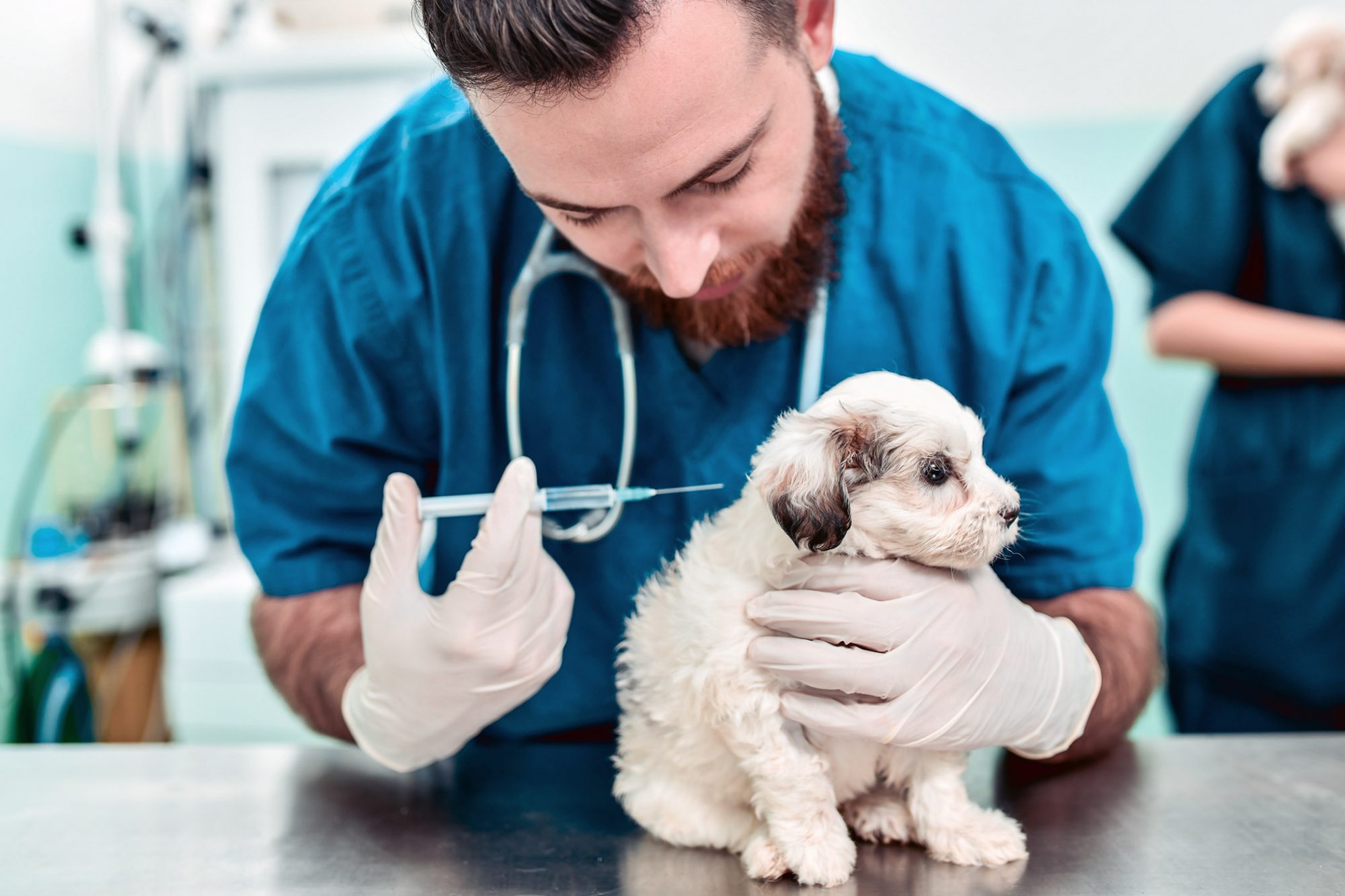When you make the commitment to become a lifelong companion and pet parent to your puppy, you are pledging to do all you can to ensure that they remain healthy and happy. One of the most important ways you can demonstrate your ongoing love for your puppy is by ensuring that they receive all of the vaccines and health check-ups that are recommended by your veterinarian. When you make your puppy’s well-being your top priority, you will be rewarded with years of loyalty, fun and love.
When Your Dog is a Puppy
It is crucial that you start your dog off in the best possible way by safeguarding their health with vaccines. Doing so will protect your new companion from life-threatening diseases while simultaneously safeguarding the health of other creatures in the house.
When a puppy is first born, it receives protective antibodies through its mother’s milk. Once the pup is weaned, this is no longer the case, and that’s where human-made vaccinations can begin to perform a crucial role.
Vaccines contain antigens that appear to your dog’s immune system to be disease-causing pathogens that must be defended against. Although the animal never actually gets sick from the introduction of these antigens, their immune system produces a response that helps to prepare it if it comes into contact with the actual disease in the future.
There are two basic types of vaccines:
- Core vaccines. These are recommended for all dogs and guard against the canine distemper virus, adenovirus-2 (against hepatitis and kennel cough), parvovirus and parainfluenza and rabies.
- Non-core vaccines. While these are not recommended for every dog, your vet may advise you to get them based on your dog’s lifestyle, existing health conditions and where you live. For example, your doctor might suggest that your puppy get vaccinated against canine influenza and Bordetella if you plan to take your dog to daycare or board them at a kennel.
Common non-core vaccines include shots protecting against Bordetella bronchiseptica, Leptospira, borrelia burgdorferi (lyme disease), canine influenza and Crotalus Atrox (rattlesnake poisoning).
Your vet will be able to recommend the precise vaccination schedule that is right for you. However, the following general template will give you some idea of what to expect:
- At six to eight weeks, your puppy should receive a DAP vaccine for distemper, hepatitis and parvo. While they are there, you can also ask your vet to give them a Bordetella and parainfluenza shot and a vaccination for Lyme disease.
- At 10-12 weeks, your dog will need a DAP booster and can also be vaccinated against leptospirosis, Lyme and canine flu. If they got their first Lyme disease vaccination at eight weeks, the booster can be administered now.
- At 12-16 weeks, your puppy can get their first rabies vaccine. In some states, it can be administered at 12 weeks at the earliest and by 16 weeks in some states. At 14-16 weeks, they should get another DAP booster.
- When your puppy turns one year old, take them in for an annual check-up and a rabies vaccine. Ask your vet if they recommend a one- or three-year rabies shot. A booster can also be given annually for Lyme disease.
Developing rapport with your veterinarian is important since they can explain their complete policies when it comes to vaccination timing, testing, deworming, heartworm prevention and spaying or neutering.
Risks Associated with Vaccinations
Very few puppies or adult dogs react adversely to vaccinations. If anything, they might experience mild after-effects that include swelling at the injection site, lethargy and loss of appetite. In most cases, these symptoms subside quickly without any additional intervention necessary. However, you should always contact your vet if you are concerned.
Your Adult Dog’s Ongoing Health Needs
Once your furry companion has grown beyond that all-important first year of life, the number and frequency of vaccinations they will need will be markedly reduced. As long as your pup remains healthy, you should be able to visit your vet just once or twice per year. At that time, they will let you know which shots are recommended so that your furry friend always remains protected against dangerous diseases.
During the annual check-up, your vet will also keep track of another vital but often ignored component: your dog’s oral health. Doing everything you can to care for your dog’s teeth is important regardless of the breed, but it is particularly crucial for certain types of dogs that are especially prone to severe gum disease. As your companion ages, the vet may recommend a dental cleaning under anesthesia that is designed to minimize the effects of gum disease and, if necessary, remove areas of decay that can compromise your dog’s overall health.
In addition to oral health, your vet will also take periodic blood samples, especially after the dog’s seventh birthday. This provides an initial baseline and makes it possible to monitor important organ and metabolic functions as your dog ages.
Pet parenthood brings immeasurable amounts of love, laughter and joy into your life. At the same time, it puts a solemn burden onto your shoulders. Protecting your dog’s health with the recommended course of vaccinations and other health-care interventions can help to ensure that your relationship with your best friend is as long and illness-free as possible.

